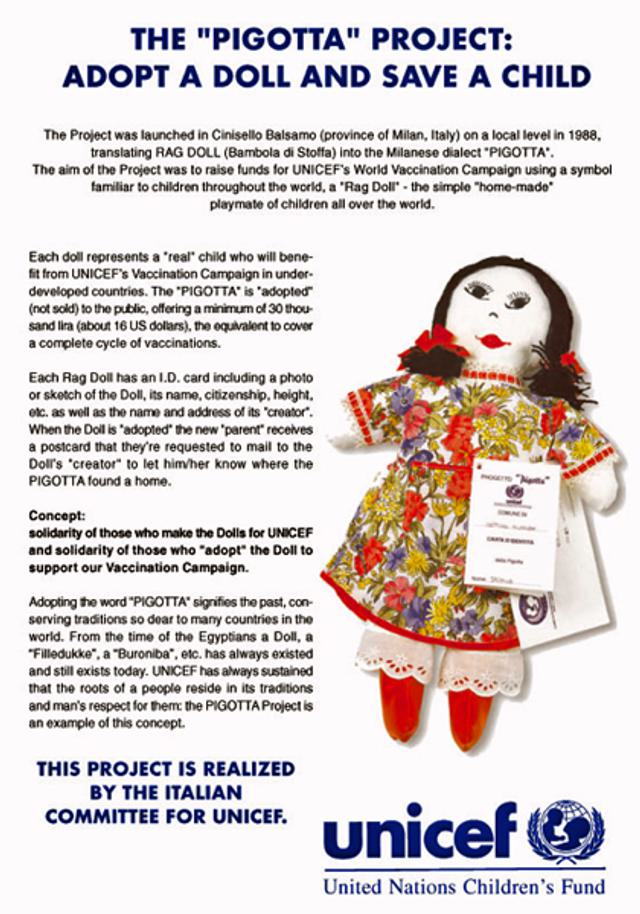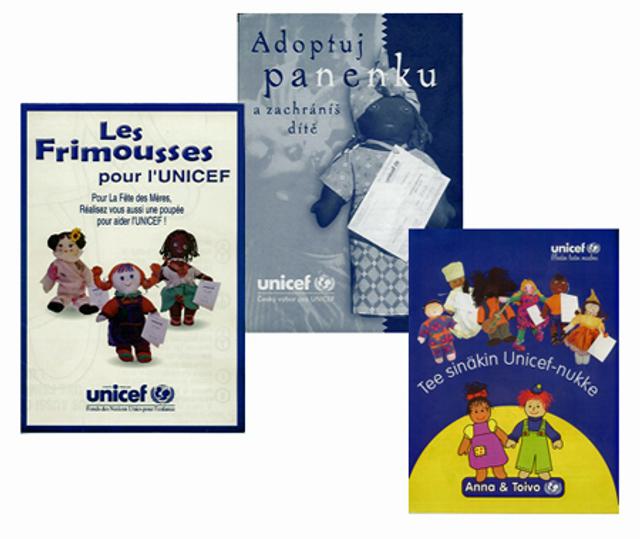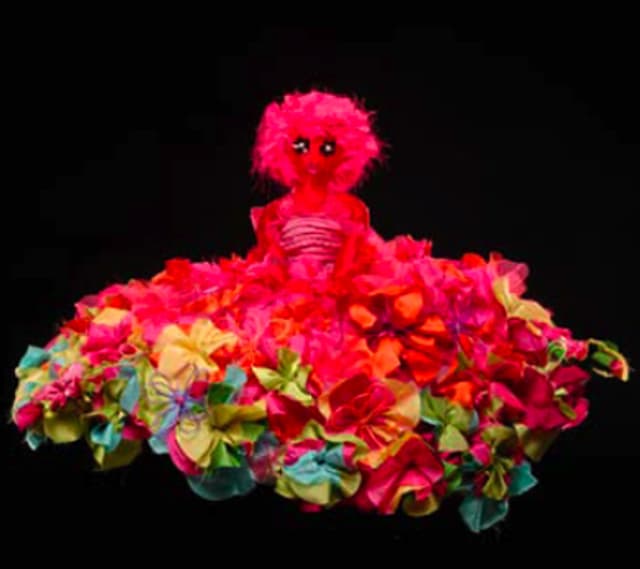UNICEF Pigotta project: adopt a doll and save a life
- Exhibited by
- Julie Weston.
- Added
- June 10, 2009
- Medium of Communication
- Face to face, posters
- Target Audience
- Awareness, single gift
- Type of Charity
- Children, youth and family, healthcare
- Country of Origin
- Italy
- Date of first appearance
- 1988
SOFII’s view
Another excellent idea from UNICEF that not only raises lots of money, but shows volunteers, particularly children, how important immunisation against deadly childhood illnesses is in the developing world. It also demonstrates how ‘it will never work here’ just isn’t true and that good ideas can be adapted to other cultures. It’s fun as well.
Creator / originator
A volunteer of the Italian National Committee for UNICEF.
Summary / objectives
The Pigotta Project is an annual community fundraising event in Italy that educates children on the importance of immunisation in the developing world.

Pigotta is an endearing Milanese pet name for a rag doll. Each year school children, seniors citizens, service clubs and volunteers get together to make rag dolls by hand that represent children around the world. These dolls are then exhibited and sold to raise funds for UNICEF. In addition to ‘creating’, the children also learn about life in developing countries.
This once small venture has become a signature event of UNICEF in Italy.
Background
The Pigotta Project began in 1988 in a small town outside Milan in Italy. A UNICEF volunteer came up with the fun and creative concept that would raise funds for UNICEF as well as teach children about less fortunate children living in other countries.
Special characteristics
Each doll represents a child who will benefit from UNICEF’s immunisation campaign. The Pigottas are ‘adopted’ by the public for approximately $17, the cost of one complete cycle of immunisations against the six deadly childhood diseases. Each doll carries an identity card, which includes the name of its maker and a postcard that the new ‘parent’ sends back.
Influence / impact
In Italy, Pigottas have become a much loved symbol of UNICEF and its success has lead to it being adapted and rolled out in other countries, under various names, Les Frimousses in France, Anna & Toivo in Finland and Panenku in the Czech Republic. In France, world famous couturiers have fashioned dolls that are later auctioned at a leading French auction house (see photos). Each country brings a local adaptation to the project.
Results
In its first year 2,000 dolls were produced raising approximately, $14,000. In 2006, it raised, $2.4 million. Cumulatively from 1988, it has raised over $18.4 million in Italy alone.
Merits
First, this is a community and volunteer initiated project that not only brings high profile but significant funds.Also, it supports the idea of ‘think global, but act local’.




Also in Categories
-
-
















